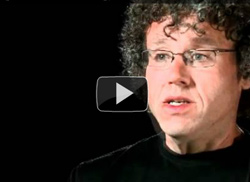Using Memory-Building To Cope With The Death Of Your Loved One
Memories are an integral part of every life and of everyday life. They are used constantly, often without our realizing it. We go out grocery shopping and automatically recall where the grocery store is located. We see an old friend and call on our memory bank to bring up her name. We decide to brush our teeth and have to remember where we put our tooth brush. And the list goes on and on.
Powerful memory-building can be consciously employed to reduce anxiety and cope with massive change. Or a memory from the distant past can be triggered by something seen or heard that brings on sadness, negative thoughts, and great distress. At those very moments, we can train ourselves to immediately substitute a loving or pleasant memory to focus all of our attention on. The result is controlling unnecessary suffering brought on by the original thought. Everyone possesses this inherent ability since each of us can control our thought life, if we work at it.
Managing thoughts is a lifelong task whether grieving or not. It is essential to work on it daily, especially when we start each day. The motivation to do this work is to become aware of and focus on the implications of a scientifically proven fact: for every thought, there is a corresponding physical response in the body. In other words, when we grieve, constantly think negative thoughts, or decide not to take a break from sadness, every cell in the body is listening to our words-and respond to the distressful event.
On the other hand, shifting to a positive memory has a healthy effect on the body, especially the immune system. So how can you start filling your memory bank to help with your great loss?
1. Begin with recalling beautiful relationship memories that bring good feelings. Get a paper and pencil and start listing them so that they will be easier to recall. Prepare your listing by reviewing your relationship with your loved one from the very beginning. What stands out? What did you learn from him or her? Did you develop courage or other good values?
Now pick out a favorite memory and jot down all of the details. Next make a clear picture of it in your mind and start using it as your anchor memory to deal with the unwanted. Repetition of any memory, bringing it up again and again, will help implant it in your memory bank and recall it when needed.
2. Do the same with the relationship memories of your close friends and family members. Listing memories of your loved one and your friends will take time and is usually not completed in one sitting. As the days go by and you remember something else, put it on your list. Remembering with love will strengthen your ability for greater recall.
3. Don't forget vacation memories with or without your loved one. If one particular memory gives you great release and relaxation, write it up and include the beauty of the surroundings so you can immerse yourself in nature's beauty. Run it over and over again and examine the trees, water, landscape, wind, birds, anything that is part of the scene.
4. Most important is to include gratitude memories. Think of the things you appreciate that others have done for you. Look closely at all of the healthy activities you can still engage in. Consider all of the so-called coincidences that have occurred at just the right time that you can attribute to your Higher Power. Your gratitude memories can be from any stage in life as well as daily occurrences that you review at the close of each day. Some mourners keep a gratitude diary.
5. Create your own useful new memories. These new memories can be from helping someone else, using a skill you have learned, doing something that honors your loved one, starting a new project, or reaching out to make new friends. Consider making memories from any experience that makes you feel good about yourself or your loved one. If you have a good day, figure out what made it good and see if you can create a feel-good memory out of some part of it. Use them to engage in positive internal dialogue.
6. Finally, use wisdom memories. Think back on things that were said by people in your life including your loved one. Pick out a few memories where you feel something profound was said. It might even be something you read in a holy book. Use them as inspirational themes that you use to alter your outlook and adapt to life without the physical presence of your loved one.
In summary, look at all of the above memory-building as a normal part of your inner work. Our memories are great gifts. We can learn to recall the ones that give us respite from our grief and teach us that we can find good things in our lives as we confront the never-ending change that has to be faced and ultimately accepted.
Don't forget to put your memories in writing and review them from time to time to see if you have forgotten to use one that could give you needed release. Do not get discouraged when negative memories pop back up as they normally do. The key action is not to dwell on them but switch to the memory you prefer.
Dr. LaGrand is a grief counselor and the author of eight books, the most recent, Healing Grief, Finding Peace: 101 Ways to Cope with the Death of Your Loved One. He is known world-wide for his research on the Extraordinary Experiences of the bereaved (after-death communication phenomena) and was the founding President of Hospice & Palliative Care of the St. Lawrence Valley, Inc. His monthly ezine-free website ishttp://www.extraordinarygriefexperiences.com.





